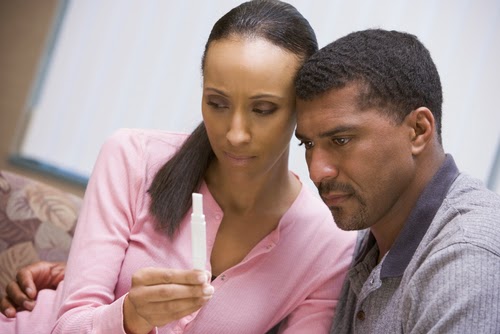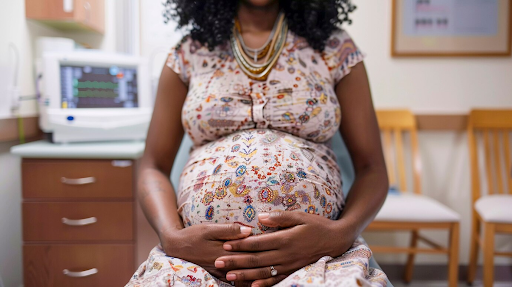You have been trying to conceive for at least one year without success. You haven’t got pregnant even though you try to have sexual intercourse while you are ovulating. You have done everything right yet you haven’t hit the jackpot and you are wondering what could be the problem, even when everything appears to check out.
Well, you are not alone. There are so many steps and possible missteps in the intricate web of human reproduction that if you’re doing any wrong, you just may be lowering your chances of getting pregnant.
So how do you fix the situation? The first thing that you need to do is relax.
Stop freaking out over your inability to conceive, one, because you are not the only one with this challenge, two, there is a solution.
It’s easier said than done not to worry, especially when all you want to do is get pregnant, and nothing seems to be working.
Stress can be a major issue in the baby-making process. When you have an elevated level of cortisol, a stress hormone, it can negatively affect ovulation and fertility.
Stress levels, anxiety, and depression affect your fertility and menstrual cycle. In men too, stress is known as a major factor that contributes to a low sperm count or poor sperm motility.
Calm down, relax, and let it happen. Stop trying so hard to plan pregnancy so much. Remind yourself that pregnancy is a miracle that actually happens very often.
Just enjoy yourself with your spouse. Whether you are newlyweds or not, have intercourse every day or every other day during your most fertile period. If you, like so many other women, don’t know when that is, stick to every other day throughout the time you think you’re most fertile. What is important is not to miss that critical fertility window.
Last week, we recognized the importance of understanding the timing of ovulation. For most women, ovulation occurs mid-cycle, assuming each has a 28- to 32-day cycle.
Most women ovulate 14 days before the beginning of their period, so, if you have a 24-day cycle, ovulation is around day 10. All of this info can be confusing if you have irregular periods or just can’t remember when you last menstruated.
Don’t make the common mistake of not counting from the real first day of your cycle. Day one is the first day you bleed, not the day after or the day before. Fertility can literally come down to a matter of hours, it’s important to know your cycle’s exact timing.
But even a regular and healthy cycle doesn’t guarantee a pregnancy. As much as you try, pregnancy really cannot be planned. It’s more of a spontaneous event. An average, normal, healthy couple will take about a full year to become pregnant.
Take your time. And if at least six months have passed and you haven’t been getting regular periods or you’re not sure if you’re ovulating, then it’s a good idea to seek out the advice of a doctor.
If you douche, it’s absolutely not a good idea for baby-making because douches can act as a spermicide, altering the acidity/alkalinity of your vagina and this has been shown to impair fertility. Also dump all lubricants, most of which have actually been shown to lower sperm count and its mobility.
There may be impaired ovulation due to a disturbed hormonal environment or poor ovarian reserve. This may or may not lead to subtle menstrual irregularities. There may be interference with the normal development of the egg or its rupture.
To understand the process of egg formation in your body, your doctor may suggest ultrasound for follicular monitoring, which happens on different days of your menstrual cycle.
There may also be abnormalities in the semen like low sperm count and/or motility which may result in failure of conception. A semen analysis can be suggested in certain cases wherein, abstinence of 3-5 days is advised.
The health of the Fallopian tubes is important. For instance, the blockage of tubes is an issue. To be able to conceive, the tubes should be open and functional.
Sometimes there may be some defects inside the uterine cavity of the woman which may interfere with the embryo’s ability to implant and grow. At times, there may be irregularities in the formation and shedding of the internal lining during the menstrual cycle which may become a detriment to smooth conception.
A pelvic ultrasound may be required to detect some of these conditions and a procedure called hysteroscopy may be necessary to treat some of these uterine structural problems.
Sometimes there may be unknown medical conditions such as Endometriosis, which may present later in life.
Severe pain before or during their menstrual cycles which can worsen over time can be a sign of underlying endometriosis and needs appropriate management.
Sometimes, as a couple, you may have unknown fertility problems, and a few times, there could be no concrete reason behind it as well.
Talking about infertility, the woman’s condition is not necessarily the issue. In fact, cases of infertility are about 40 percent male-related, 40 percent female and 20 percent a combination of both partners. So it is a shared problem. Don’t forget it usually takes a healthy couple between six months and one year to conceive.
This way, if it takes you a little longer to get pregnant, you’ll already know how to handle things.





